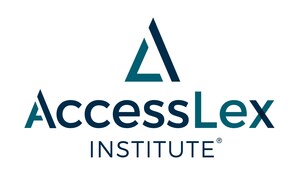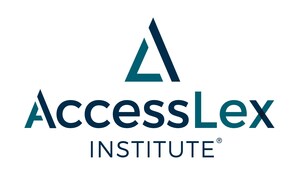New Research Report Examines Factors Impacting New York State Bar Exam Pass Rates Among First- and Second-Time Takers
WEST CHESTER, Pa., May 19, 2021 /PRNewswire/ -- The New York State Board of Law Examiners (NYBOLE) and AccessLex Institute, the largest charitable organization in the country dedicated to the betterment of legal education, together released a new research report identifying factors that contribute to successfully passing a bar examination and exploring the reasons why some candidates may not pass on their first attempt.
After adopting the Uniform Bar Exam (UBE) in 2016, NYBOLE commissioned AccessLex Institute to begin this two-year study examining demographic, academic and behavioral factors associated with first-time and second-time bar exam passage. The project emerged from a historical review of New York State Bar Examination pass rates, which found that racial and gender gaps in bar passage narrowed significantly among those taking the exam a second time. The report was intended for release during spring 2020, but its release was delayed because of the unprecedented impact of the pandemic on the administration of the bar exam.
Some factors identified in the report as influencing first-time and second-time bar passage, such as the amount of time spent studying, were obvious. Other factors, such as the fact that there was little connection between the number of elective, bar-tested subject courses taken and first- or second-time bar exam passage, were not. Also of note, candidates who reported greater satisfaction with their law school were more likely to pass the New York State Bar Examination on their first or second attempt, even when controlling for other factors such as LSAT score, law school selectivity, and participation in a law journal, mock trial, or student organization.
The study also found that second-time takers who made certain adjustments from their first bar exam attempt while preparing for their second bar exam attempt were more likely to pass on the second attempt. For instance, using a different commercial bar preparation course and increasing study time were both positively associated with second-time bar passage. Such findings will provide value in identifying successful bar exam preparation strategies.
"A key benefit of this comparative study of first- and second-time bar passage is that it uncovers first-time pitfalls that lead to repeating the exam and, at the same time, identifies strategies and modifications that can improve the likelihood of success for both first-time and repeat takers," said Tiffane Cochran, Managing Director of Research at AccessLex Institute. "That is why this pre-pandemic study remains valuable—because even amid changes to the test and its delivery method, whether permanent or not, the experiences and insight of those who failed the bar exam the first time but passed on their second attempt are still relevant and can be useful for those preparing to take the bar exam now and into the future."
The full report offers additional detail, context, and recommendations for law schools and the legal profession, as well as suggestions for future research. As NYBOLE observed, increased understanding of repeat bar exam performance could play a significant role in achieving greater parity in first-time bar passage rates among all subpopulations of candidates for bar admission.
About AccessLex Institute:
AccessLex Institute is a nonprofit organization committed to helping talented, purpose-driven students find their path from aspiring lawyer to fulfilled professional. In partnership with its nearly 200 Member law schools, improving access and positively influencing legal education have been at the heart of the Company's mission since 1983. AccessLex Institute is headquartered in West Chester, PA. Learn more at AccessLex.org.
CONTACT: Julie Solomon, [email protected]
SOURCE AccessLex Institute

Related Links
WANT YOUR COMPANY'S NEWS FEATURED ON PRNEWSWIRE.COM?
Newsrooms &
Influencers
Digital Media
Outlets
Journalists
Opted In






Share this article